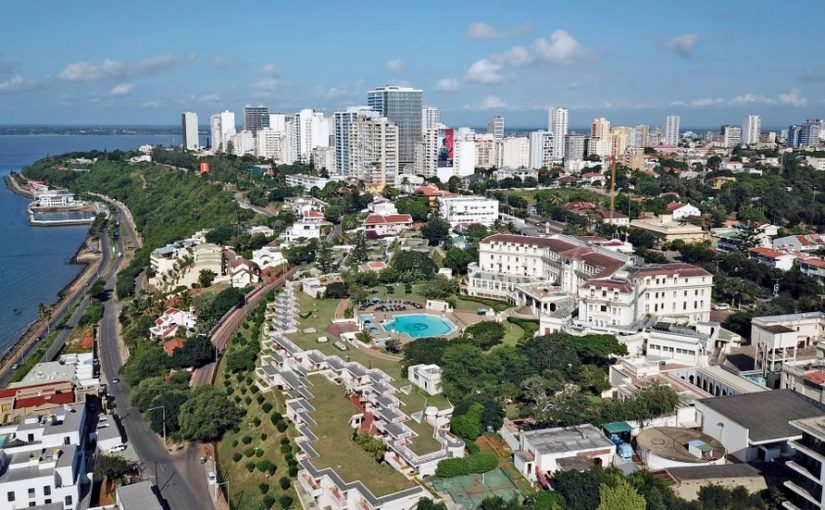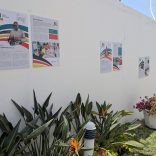Mozambique: Recovered assets finance social projects
Business conditions rebound in February as Omicron wave passes – Standard Bank Mozambique PMI™

FILE PHOTO - For illustration purposes only. Aerial view of Maputo city. [File photo: Lusa]
Key findings:
- Output recovers after sharp decline in January
- New orders rise solidly, but employment levels fall
- Business expectations pick up to seven-month high
The Mozambique PMI signalled renewed growth across the private sector economy in February, as a sharp drop in COVID-19 cases linked to the Omicron variant led to a rebound in sales and customer demand. In response, business activity levels were expanded, although there were reductions in both staffing levels and input purchases. The upturn in sales gave firms greater confidence in future activity and contributed to a renewed uptick in selling prices
The headline figure derived from the survey is the Purchasing Managers’ Index™ (PMI). Readings above 50.0 signal an improvement in business conditions on the previous month, while readings below 50.0 show a deterioration.
At 51.2 in February, the index was back above the 50.0 neutral mark after having slipped to a 16-month low of 46.7 in January. The reading signalled a modest improvement in operating conditions across the private sector. Three elements of the PMI had a positive influence, namely Output, New Orders and Stocks of Purchases which all returned to growth.
The rise in business activity was solid in February, and the joint-quickest since July last year. Higher output was widely linked by panellists to a renewed increase in sales, as a sharp fall in COVID-19 cases prompted an improvement in customer demand. After expanding in just one of the five monitored sectors in January, the latest data signalled that output and new business grew in all areas except for agriculture.
Despite the renewed uplift in business conditions, the Omicron wave continued to impact firms’ purchasing and hiring decisions. Input buying levels fell for the third month running, albeit to the least extent in this sequence. More notably, employment levels decreased for the first time in ten months, as firms continued to highlight spare capacity and lower backlogs.
On the cost front, Mozambican businesses saw a renewed uptick in purchase prices and a further increase in staff salaries in February. However, with purchases falling still, overall input costs dropped for the second month running and at a faster rate.
Output charges were meanwhile raised by private sector firms, following a slight reduction in the previous month as the Omicron wave hit demand. Notably though, the rate of output price inflation was softer than those seen in the seven months prior to January.
Finally, the outlook for future activity jumped to the strongest level since July last year, as rising new orders gave firms greater confidence in the near-term performance of the economy. Increased sales also led firms to expand their stocks of purchases for the first time
in three months, which was helped by a solid improvement in suppliers’ delivery times.
Comment
Fáusio Mussá, Chief Economist – Mozambique at Standard Bank commented:
“Standard Bank PMI signalled a recovery in economic activity in February as the index printed above the 50-benchmark. This mainly reflects an easing in health restrictions, following a material decline in Covid-19 daily infections.
“While the PMI suggests that the economic recovery is broad based, we noticed that Agriculture is still experiencing a temporary deceleration in growth. Mozambique remains affected by heavy rains, which negatively impacts agricultural production in many regions. The rainy season, which runs from November to March, already shrank agricultural output growth to 4.1% y/y in Q4:21, from 4.9% y/y in Q3:21.
“The PMI suggest that firms continue to expect growth in business as the future expectations index prints higher. This is consistent with our GDP growth views expressed in the January edition of Standard Bank’s African Revealed Markets (AMR), where we see growth at 3.1% y/y this year, from 2.2% y/y in 2021. Economic activity should continue to benefit from the easing in health restrictions and from security improvements in Cabo Delgado that may assist natural gas investment. This, combined with expectations of an IMF extended credit facility (ECF) program being agreed by mid-year, should see external support increase from H2:22.”













Leave a Reply
Be the First to Comment!
You must be logged in to post a comment.
You must be logged in to post a comment.